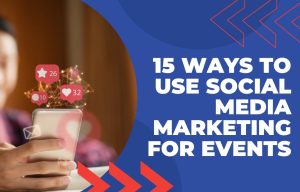The habits we indulge in outside of our working hours can play a huge role in our wellbeing, productivity and all round happiness. The habits we choose to share with the world, through platforms like Instagram, can give a peak into the way we think and what we believe to be important.
We gathered some of the planet’s most successful people from the worlds of business, sport, music and film to investigate the downtime habits of successful people, according to their Instagram feeds. Check out some of the most popular activities in our graphic below; how could you apply these habits in your daily life?

Embed this image on your site – simply copy the code below and paste into the source of your page:
<a href=”https://www.discountdisplays.co.uk/our-blog/downtime-habits-of-successful-people”><img src=”https://www.discountdisplays.co.uk/our-blog/wp-content/uploads/downtime-habits-of-successful-people-discount-displays.jpg” alt=”Downtime Habits of Successful People”/></a><br /> Credit: <a href=”https://www.discountdisplays.co.uk/”>Discount Displays</a>
What the experts say
The downtime habits of successful people can provide interesting insight into the inner workings of folks who excel in their fields. We asked a group of experts to tell us why the habits revealed here are so popular amongst successful people. Here’s what they had to say:
Swimming
Ian Cumming, chair of the Swimming and Health Commission, said:
“These findings support the research we released last year about the many health and wellbeing benefits of swimming.
“Physical activity in any form can have a positive impact on a person’s mental health, but swimming is unique because the buoyancy of water ensures everyone is able to take part at a pace that suits them. It is particularly good for people with restricted movement.
“Research shows that simply being in water can be restorative, particularly swimming outside. People relax in many different ways – some set a target and aim to beat their time while others prefer a more leisurely swim on their own or with friends. Swimming provides that choice, and if it is regularly prescribed alongside other forms of support, swimming could have a real impact on wider society.”
Travel
Travel was a popular downtime activity amongst successful people, with images of beautiful scenery and impressive backdrops adorning the feeds of the majority of our celebrities. And for good reason, said our travel expert Gareth O’Sullivan from Orbis Explorer, who himself has a social following of over 160,000 watching his adventures around the world:
“Successful people spend downtime travelling to amazing places mostly to take their mind off work and reconnect with nature and improve their wellbeing. It’s important to disconnect and take time out for yourself, look at the world from different perspectives and learn more about different cultures.”
Sport
Sports – from cycling to golf to running to gym work – were a popular pastime amongst our celeb success stories. We all know the health benefits of exercise, but have you considered how it can make you a more successful person in your working life, too?
“Increasingly, research is showing that regular exercise can assist with relieving stress and anxiety, alleviate depression and preserve mental faculties and skills”, say the experts at Realbuzz.
“This is because it seems that exercise increases the production of key brain chemicals. These chemicals encourage the growth of brain and nerve cells and help develop new neural pathways (lines of communication between the brain and the body). It also improves blood and oxygen flow to the brain and promotes the growth of blood vessels, allowing brain tissue to be nourished and preserved.”
Lifestyle
Our lifestyle choices have a huge impact on how stressed – or not – we feel in our day jobs. It’s no surprise, according to Adam Bent, co-founder at Welldoing.org, that our celebrities have shared such a varied set of downtime activities:
“Taking time out of your day job is an essential step in improving wellbeing. In an ‘always on’ society, we can feel pressured to work around the clock but as we see from research, even the most successful people in their fields make time to relax and rejuvenate.”
Branding insights from the downtime habits of successful people
The way we talk about ourselves – as individuals or as brands – has a huge influence on the way we’re perceived by our audience.
What’s interesting in this research is the way that these successful people have been willing to share genuine insights into what they do in their spare time. While their Instagram posts are almost certainly guided by a PR or marketing strategy, the fact remains that these people have to do the things they show themselves doing in order to be able to talk about it.
As brands, we often look at how we can talk positively around our products or services, but do we think enough about the implications of providing a broader insight into what makes us, well, us?
“The downtime habits research has unveiled some interesting findings in terms of how these people use their spare time, and the effect of those choices on their success in their own fields,” explains Discount Displays branding expert Aaron Inglethorpe.
“But what’s even more interesting is considering the wider implications of sharing this information for the person’s brand. It’s one thing to talk about how great a footballer or singer or business person you are, quite another to craft a brand persona with which people can actually empathise. By talking about their downtime habits, each of the people in our research has created a much more rounded persona – something brands across the board can learn from and implement themselves.”
So, how can brands learn from the downtime habits of successful people? Here are our top tips:
1. Agree a ‘brand persona’
It’s much easier to represent your brand when you’ve spent time agreeing how you want to be perceived.
One method of doing this is to create a brand persona. Think “if my brand was a person, what kind of person would it be?”.
Think about things like dress code, vocabulary, expertise, interests. For example, would your brand wear a suit to work, or something more casual? Would it speak informally, or lean more toward jargon? What topics would it be an expert in? What would be its wider interests?
All of these things can lead and sculpt your marketing and comms work, so it’s a good idea to pull all key stakeholders into this discussion and ensure everyone is agreed and the persona is documented in some way.
2. Align your marketing messages
Alignment of marketing messages is a key part of the process. Once you know how you want to be perceived, spend some time reviewing all of your internal and external facing comms. Does your website’s language reflect your persona? Does the imagery show off your brand in the best way? Consider offline too – if you’re using banners, are they up to date? Is your exhibition stand representative of the persona you want to portray?
Even small things like your email signature or the signage you have on your office door can influence how you’re perceived.
3. Paint a fuller picture
Once you’ve covered off points 1 and 2, it’s time to start thinking about broader activities that will build your brand. In the same way that our research has shown well known successful people sharing insights into their downtime habits, how can you paint a fuller picture of the brand you want to portray?
For example, getting involved in charity work, holding team building days or sharing photos of office pets on social media might seen inconsequential, but can actually have a positive impact on how you’re perceived – just make sure it’s relevant to your brand.
Our methodology
We wanted to understand how successful people were spending their spare time. Instagram, being a publicly available feed, provided this information.
We gathered some of the top celebrities in the fields of business, sport, music and film to investigate their Instagram feeds and the activities that appeared most frequently outside of their work. Featured celebrities were:
Business
| Name | Followers | Forbes Rich List |
| Richard Branson | 2.9 million | #388 |
| Lord Sugar | 56,000 | N/A |
| Jeff Bezos | 580,000 | #1 |
| Mark Zuckerberg | 4.7 million | #5 |
Sport
| Name | Followers | Forbes Top 100 |
| Cristiano Ronaldo | 142 million | #3 |
| Roger Federer | 5.4 million | #7 |
| Lewis Hamilton | 7.5 million | #12 |
| Usain Bolt | 8.8 million | #45 |
Music
| Name | Followers | NME Top Rated |
| Adele | 32.4 million | #1 |
| Ed Sheeran | 26.2 million | #2 |
| Taylor Swift | 112 million | N/A |
| Sam Smith | 10.3 million | #9 |
Film
| Name | Followers | IMDB Rated |
| Will Smith | 22.7 million | #12 |
| Kristen Bell | 7.7 million | N/A |
| Seth Rogen | 6.1 million | N/A |
| Channing Tatum | 7.2 million | #14 |
You can view the full data set and example Instagram posts here.




